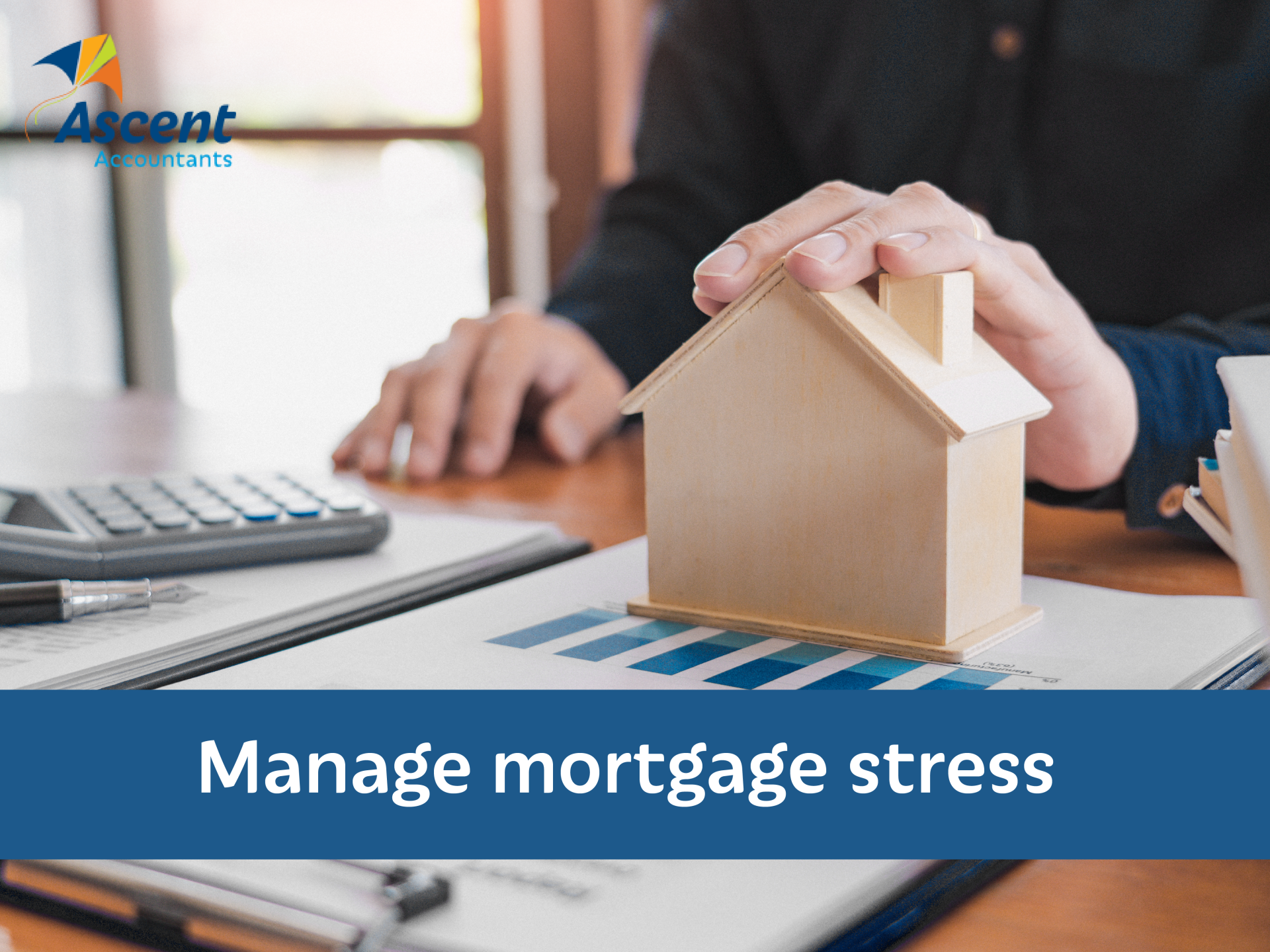Manage mortgage stress

Most homeowners experience mortgage stress as some point. This has always been the case, but with house prices rising across the nation, it’s more common than ever. Plus, with the Federal Government’s attractive stimulus packages and record-low interest rates, people are taking out bigger-than-normal home loans.
Facts & figures
According to the Australian Bureau of Statistics, the average new home loan is just over $578,000 — almost six times larger than the average national annual income of $99,000. In other words, people are biting off more than they can chew. This is leaving one-in-five homeowners with a high debt leverage ratio, which is a huge figure. Think about it: 20% of people you know — and perhaps yourself — who are homeowners are exposed to financial stress due to their home loan. And mortgage payments are just one expense — there’s daily living costs, petrol, leisure and hobbies, bills, groceries, insurances, and so much more.
You should enjoy owning your own home, not be burdened by its repayments. Thankfully, whether it’s the initial shock of making mortgage payments or financial hardship down the track, there are ways to manage the debt (and the stress that comes with it). We’re going to share four mortgage stress management strategies with you.
Mortgage stress management strategies
1. Buy responsibly.
That seems obvious, but practically, we mean ensuring that your home loan commitments represent no more than 28 percent of the household income. Anything higher is likely to stretch you financially.
2. Make extra repayments where you can.
Make the most of your low rates — which can change — and get ahead on your repayments when you can. According to Reserve Bank of Australia Governor, Phillip Lowe, low rates will only continue until 2024. So, as a general rule, you should factor in an interest rate of 5 percent, and make repayments as if this was your usual rate (because one day, it might be!). We realise that not everyone has the luxury of making additional repayments, but if the opportunity to do this comes up, at least look into it.
3. Get the best deal.
It pays to shop around. Obviously, not all interest rates are equal, and it’s well worth the hassle of switching banks if it means it’s saving you thousands of dollars in interest down the track. The Can-Star and Finder websites provide comparisons for you, so really, shopping around is just a few clicks away; there’s no reason not to compare.
Once you find a winner, you may even be able to negotiate a lower rate — especially if it’s with the bank you’re already with. You should also talk to your bank about tailored fixed and variable portions of your mortgage to you can enjoy more certainty on your repayments.
4. Build a cash reserve.
A strong cash reserve in an offset account could reduce the amount of interest you pay. This will help you pay off your mortgage faster and acts as a good buffer for future rate rises.
Seek advice
Whether you’re buying you first home or your fifth, always seek professional advice from a trusted financial adviser. A home loan is likely the biggest financial investment you’ll ever make, so talking to someone who knows the area intimately is an absolute must. We’ll help you put your mind at ease with guidance and quality insights on the right moves for you when it comes to avoiding mortgage stress.
Need help with your accounting?








